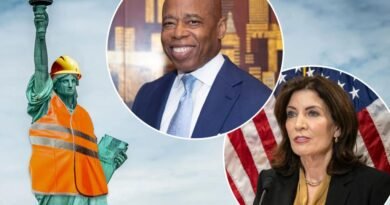Lawmakers Target Hotels (and NY Economy) in Support of Unions
City lawmakers are once again making decisions that will negatively impact Gotham, this time to cater to the hotel unions.
A City Council hearing is scheduled for Tuesday to discuss a destructive bill that would require the industry to use more union labor, restrict outside contracting severely, and require annual license renewals.
This bill also includes various other mandates, such as dictating the number of security guards, aiming to micromanage the hotels to benefit the unions.
It’s an incredibly bold move that will have far-reaching effects on the entire industry and local economy.
Hotel Association of New York City head Vijay Dandapani describes it as a “nuclear bomb” for hotels, highlighting the detrimental impact it will have on the industry.
Given that the hotel industry is a significant contributor to the city’s $60 billion tourism sector, with over 150,000 jobs, any additional burdens will have ripple effects throughout the city.
Consider the potential consequences of this bill on hotels:
- Many hotels may struggle to meet the staffing requirements and the mandate for a majority of core employees to be covered by a union contract, leading to potential closures and job losses for thousands of workers.
- Annual license renewals could become contentious issues, with minor infractions like inadequate WiFi being used as leverage to control hotels’ operations and costs.
In addition to impacting hotel operations, the bill also imposes rules on hotel guests, further extending its reach into the industry.
By forcing hotels to increase rates to comply with these regulations and considering the current room shortage, visitors may opt to avoid New York altogether, resulting in billions of lost business activity for the local economy.

The bill, designed to boost union jobs and membership, comes at the expense of an industry still recovering from the impact of COVID-19.
With prices already on the rise due to migrant housing initiatives that have taken thousands of rooms off the market, finding affordable accommodations in the city has become increasingly challenging for visitors.
This decline in city tourism has a cascading effect on retailers, taxi drivers, restaurants, and their suppliers.
If city lawmakers insist on managing the hotel industry, they should invest their own resources in purchasing or building hotels rather than burdening the private sector with regulations. Otherwise, the city risks alienating the private sector altogether.



